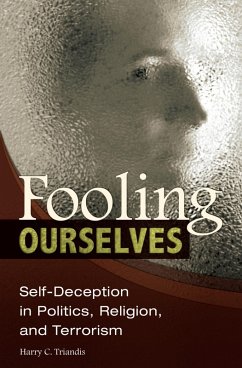Self-deception occurs because we often see the world the way we would like it to be, rather than the way it is. Our brains so long for things the way we want them, we might not even be aware we are fooling ourselves, explains author Harry Triandis, a widely known Professor Emeritus of Psychology. Across cultures and around the world, self-deception is a phenomenon that has subtle and profound effects on everyday life, explains Triandis, also former president of the International Association of Cross-Cultural Psychology. In this work, he not only explains how and why self-deceptions occur in three areas - politics, religion, and terrorism - but also how to recognize and reduce the frequency of fooling ourselves.
Insights here include consideration of personal and societal self-deceptions, as well as extensive understanding of how politics, ideologies, and religions can frame reality for each of us in such a way that it is, in our minds, warped so the stage is well-set for self-deception. This text will be of special interest to general readers drawn to politics and religion, as well as scholars of psychology, anthropology, and sociology.
Insights here include consideration of personal and societal self-deceptions, as well as extensive understanding of how politics, ideologies, and religions can frame reality for each of us in such a way that it is, in our minds, warped so the stage is well-set for self-deception. This text will be of special interest to general readers drawn to politics and religion, as well as scholars of psychology, anthropology, and sociology.









